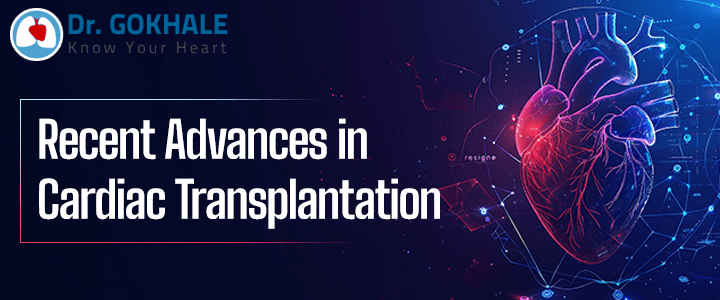Ever since the first cardiac transplantation was performed 57 years ago, cardiac transplantation has been a beacon of hope to patients all over the world. Over the decades, the effectiveness of these procedures has improved significantly.
Today, heart transplantation gives a new lease on life to millions of patients worldwide, all thanks to the continuous evolution of the technology that supports transplant procedures. Fortunately, medical technology is constantly evolving every day, improving the efficiency of the procedures and the recovery of the patients.
In this blog, let us look at the five recent advances in cardiac transplantation that are set to improve the procedures significantly in the years to come. Read on:
Recent Advances in Cardiac Transplantation
Ventricular Assist Devices (VADs) and Artificial Hearts: Artificial hearts, also known as VADs, are mechanical devices designed to temporarily replace the patient’s heart for short terms while waiting for a suitable donor heart. Unlike earlier options, which could jeopardize the entire heart transplant process, the artificial heart helps prolong the waiting times and provides hope to the patients, avoiding deterioration of the native heart and improving accessibility factors.
Organ Preservation Technologies: Historically, transportation of donor organs was made possible by freezing them to near-freezing temperatures. Though this procedure helps, it is only feasible for shorter transportation times. Recent advances are actively advancing the organ preservation process through a variety of advanced methods that perfuse the donor organs with warm, oxygenated blood, which over time reduces cellular injury and increases the organ’s availability. Not just for heart transplantation, these techniques can also be used for other organs, which increases the number of organs that can be successfully transplanted from a single donor.
Tailored Organs and Gene Editing: The gene editing advances have successfully been creating new opportunities for great transplantation successes. Scientists can now alter the genetics to decrease the risk of organ rejection and improve organ-donor compatibility. While this is an advanced process, it holds significant promise for heart transplantation. In addition to these developments, the creation of customized organs from patients’ own cells is another great avenue of research that is set to revolutionize the future of heart transplantation around the world.
Cardiac Transplantation: A Promising Future on Cards
While the advancements above are major breakthroughs, there are numerous other areas where technology is making rapid strides to improve heart transplant outcomes. “Developments in new medications and treatments for better immune suppression with fewer side effects are one such area experiencing rapid progress,” notes Dr. Krishna Gokhale.
In addition, customized treatment plans tailored to individual characteristics and therapies that target rejection side effects are gaining traction in cardiac transplantation.
Heart transplants are advancing swiftly across all fronts: enhancing organ availability, reducing side effects, and improving survival rates and patient tolerance. For more details on the latest advances in cardiac transplantation, visit our blog, where we regularly share updates. If you have questions about any of these developments, feel free to reach out to top cardiac transplant surgeon in Hyderabad Dr. Alla Gopala Krishna Gokhale here.
 Ask Doctor
Ask Doctor
